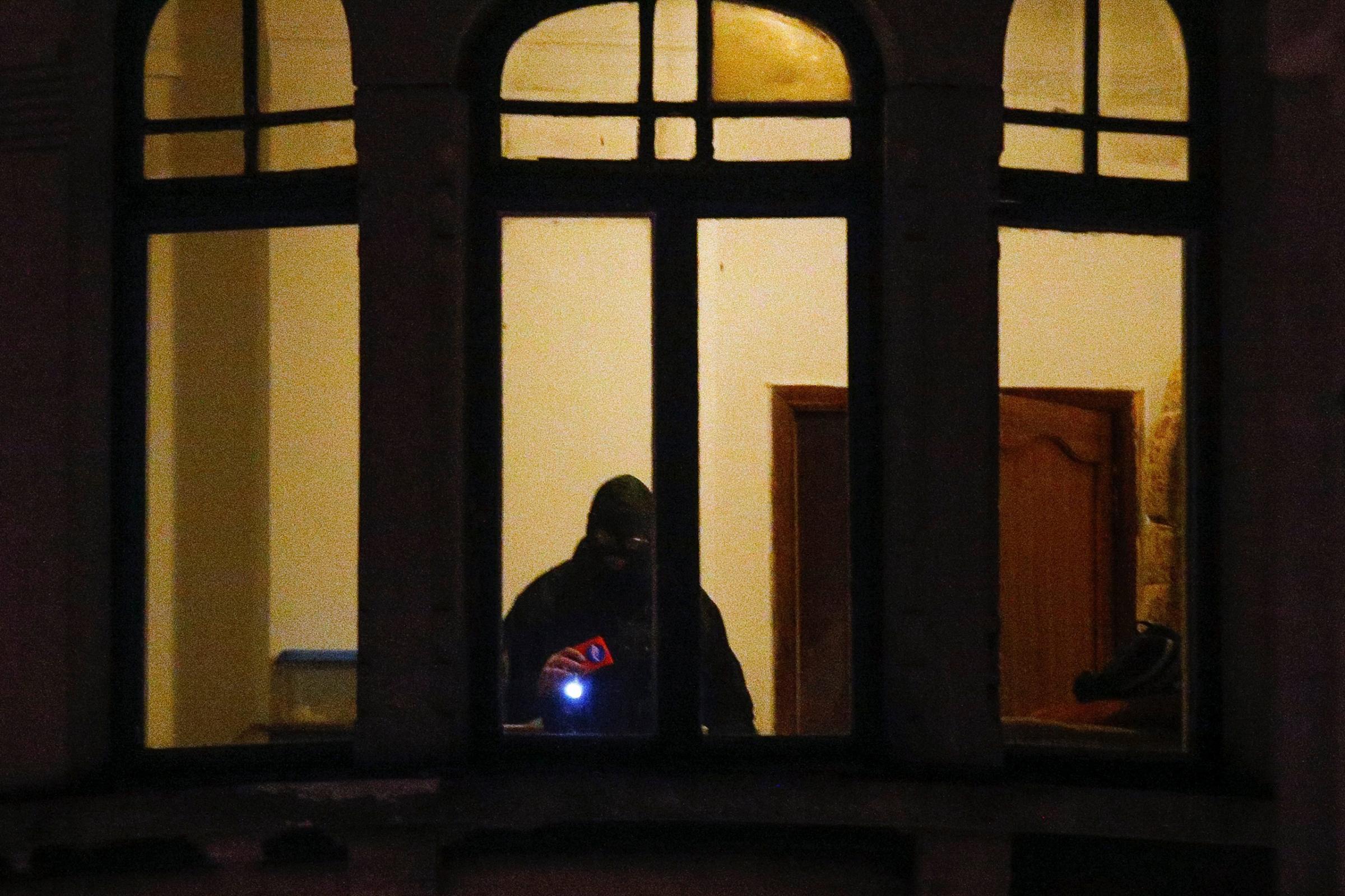With Belgians reeling in shock from Tuesday’s deadly suicide bombings in the capital Brussels, officials said several suspects were still the run, and that they were far from cracking the jihadist network behind the attacks. “There are still a number of people possibly involved, remaining, who have not been arrested and who still pose a danger,” Paul van Tigchelt, director of the government’s Center for Analysis of Threats, told reporters on Wednesday. “Police and intelligence services are working with all their might on the basis of information from yesterday and today.”
As residents returned to work, Belgian media, citing several unnamed officials, said police had captured Najim Laachraoui, 24, who police believe made the suicide vests used in the Paris attacks in November last year. Local media speculated that Laachraoui was one of three men pictured on CCTV at Brussels Airport on Tuesday shortly before two explosions killed 11 people.
Officials dismissed reports of Laachraoui’s arrest but federal prosecutor Frederic Van Leeuw told reporters that Ibrahim El Bakraoui, 29, and another as yet unidentified suicide bomber had attacked the airport. A third attacker also came to the airport with an explosive in a bag, but it exploded later and no one was hurt, he said.
Ibrahim’s brother, Khalid El Bakraoui, 27, blew himself up at the Maelbeek subway station. Both attacks killed at least 31 people and wounded 270.
For police, a lucky break in the case came from a taxi driver, who recognized the three men on the security camera the moment the image was broadcast on television, as the passengers he had driven to the airport. He told police he had picked them up from an apartment on Rue Max Roos in the Schaerbeek district in northeast Brussels—an area where police found bomb-making equipment allegedly used in the Paris attacks last November 13, which killed 130 people.

Police also found an abandoned computer in a trash can near the apartment, with a frantic last message from Ibrahim El Bakraoui, according to to Van Leeuw. “Being in a hurry, I don’t know what to do, being searched for everywhere, not being safe,” the note said. “If it drags on it could end up with me in a prison cell next him.” Although “him” is not named, the Brussels attacks came just four days after Belgian police finally captured Salah Abdeslam, the only alleged perpetrator from the Paris attacks believed to be still alive.
The Belgian-born El Bakraoui brothers were well known to Belgian police, since they had been arrested previously for crimes including carjacking. But until Tuesday, nothing suggested that they were jihadists. “The two terrorists had a criminal record but no connection to terrorism,” Van Leeuw said.
He told reporters the men had ordered a big taxi, telling the depot they had a lot of luggage. Mistakenly, the taxi company sent a small taxi, forcing them to leave behind two of the five bags they had—two other bombs, according to Van Leeuw. Police searches later found 15 kgs (about 32 lbs) of explosives, as well as nails and screws found in the explosive devices in Tuesday’s attacks. They also found 150 litres of acetone, 30 litres of oxygenated water and detonators.
The first victim of the bombings was publicly named as Adelma Tapia Ruiz, 36, a Peruvian resident of Brussels. She was at the airport to see off relatives of her Belgian husband, Christopher Delcambe, who was injured. The couple’s twin four-year-old daughters had just left the hall to play and were followed by their father when the explosion occurred.
Belgians Olivier Delespesse and Leopold Hecht were named on social media as being killed in the attacks.
More Must-Reads from TIME
- How Donald Trump Won
- The Best Inventions of 2024
- Why Sleep Is the Key to Living Longer
- Robert Zemeckis Just Wants to Move You
- How to Break 8 Toxic Communication Habits
- Nicola Coughlan Bet on Herself—And Won
- Why Vinegar Is So Good for You
- Meet TIME's Newest Class of Next Generation Leaders
Contact us at letters@time.com